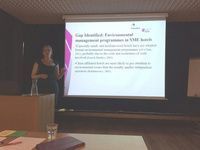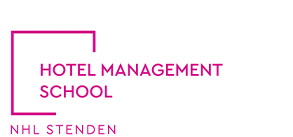
-
 publication: 10 October 2016
publication: 10 October 2016
Report on the 25th Nordic symposium in Tourism and Hospitality

The Nordic symposium on Tourism and Hospitality is an annual conference that took place in Turku, Finland this year. During the two days of the symposium there were several interesting keynotes.
Professor Reidar Mykletun analyzed the content of the past 25 conferences, and found recurring research themes, like entrepreneurship, food, sustainability, and research methods. He also noted that the PhD production in the Nordic region has gone up significantly over the last decade. The overall conclusion was that there is a lot of good high level research done in the Nordic region, and that there is still a huge growth potential for the academic world in this area of the world.
Dr. Mucha Mkono gave a presentation on how viral content can help shape tourism. The case she presented was that of Cecil the lion. She analyzed it using the 3E-model, which consists of E-motion (poor lion shot for pleasure), E-ndorsement (Jimmy Kimmel posted an short video online) and E-mergency (lions are threatened with extinction). The whole rumour around this viral story led to several changes in legislation by tourism companies. E.g.: Airline companies like American Airline and Delta will no longer carry trophies on board, several countries banned the import of trophies and countries like Botswana banned trophy hunting tourism altogether. The overall conclusion was that viral content with the help of social media can help shape the tourism industry for the better.
Professor Stuart Roper presented how pollution in a city can negatively affect the image of a city as a destination. He covered controllable and uncontrollable events leading to a positive or negative image when branding a city. The overall conclusion was that rather than increasing the budget of city to brand itself, a city might invest in decreasing litter in the streets. Having untidy streets showed a relation to perceived safety, a decrease in normative ‘civil’ behaviour, and most importantly, a decrease in the attitude towards a place. Taking care of litter might thus lead to a better image of a city.
Besides these key notes, there were many interesting parallel session presentations on diverse topics, such as marketing, innovation, ethical tourism, research methodologies, and so on. The track on influencing sustainable behaviour in tourism and hospitality proposed by our colleague from tourism Sarah  Seidel and myself (Femke), was well-received and well-attended. It proved to be a good opportunity for feedback and discussion. I presented my research on gaps identified in the academic literature on the certification behaviour of hotel entrepreneurs in connection to their environmental engagement. Attendees commented that it was an important and interesting topic to research, and asked useful questions and gave good feedback.
Seidel and myself (Femke), was well-received and well-attended. It proved to be a good opportunity for feedback and discussion. I presented my research on gaps identified in the academic literature on the certification behaviour of hotel entrepreneurs in connection to their environmental engagement. Attendees commented that it was an important and interesting topic to research, and asked useful questions and gave good feedback.
Klaes presented two papers. The first one on the topic of internal and external representation of hotels, related to Employee branding. This is the research line that Klaes has chosen for his UR group. HRP groups from previous years yielded very useful results, and this year’s UR group continues with this topic. The study takes the motto from Ritz Carlton as its point of departure: Do hotels at different classification levels see their staff as Ladies and Gentlemen, and does this apply in all levels of the organization? In other words: do the hotels in their job announcements look for ladies in the housekeeping and gentlemen for the dishes?
The presentation was well attended and ended with an open invitation to participate in this research. Next year researchers for New Zealand and Stockholm will join this research.
Klaes’ second presentation was on a multi-stakeholder analysis of authenticity in Giethoorn. This study used data that were collected in several research projects: it was one of the themes of the Hospitality Excellence Programme of the five Dutch hotel schools this year. Besides that a MA student wrote her thesis on Chinese visitors in Giethoorn and an MP student looked into the entrepreneurial side. This presentation led to a lot of debate. It seems that the central question: “is authenticity for sale?” hit a nerve.
Klaes also supported the presentation of a Chinese former MA student, Shenghan Zhou, who now works on her PhD in Rovaniemi, Finland. The topic of her study is the visual representation of Leeuwarden as European Capital of Culture. A first article on this research was published in our journal Research in Hospitality Management 5(1).
Overall the Nordic symposium was a great experience. Especially notable is the atmosphere at the conference: everyone is warm, welcoming, supportive and open towards each other.
Soon I expect to be in possession of all the keynote presentations, so feel free to drop by to go over them together, or ask me to send them to you.
Best regards,
Femke Vrenegoor & Klaes Eringa




 Back to overview
Back to overview

